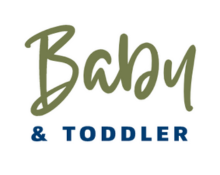
Prenatal care is not just a routine series of medical appointments; it’s a cornerstone of ensuring the health and well-being of both the mother and the baby throughout pregnancy. This lesson explores the numerous benefits that prenatal care provides, highlighting how it supports maternal health, promotes fetal development, and sets the stage for a positive childbirth experience.
Benefits for the Mother
Monitoring and Managing Health
Regular prenatal visits enable healthcare providers to monitor the mother’s health closely. They can identify and manage any existing medical conditions such as high blood pressure, diabetes, or infections that could complicate pregnancy. Early detection and management of these conditions help reduce the risk of complications during pregnancy and childbirth.
Nutritional Guidance
Nutrition plays a crucial role in pregnancy, affecting both maternal and fetal health. Prenatal care includes guidance on maintaining a balanced diet rich in essential nutrients such as folic acid, iron, and calcium. Adequate nutrition supports the mother’s health, helps prevent conditions like anemia, and contributes to healthy fetal development.
Emotional Support
Pregnancy can bring about a range of emotions, from excitement to anxiety. Prenatal care provides a supportive environment where expectant mothers can discuss their concerns, receive reassurance, and access resources for coping with emotional challenges. Addressing maternal stress and mental health during pregnancy promotes overall well-being and prepares mothers for the emotional demands of childbirth and parenting.
Preparation for Childbirth
Prenatal care includes education on childbirth options, labour stages, pain management techniques, and creating a birth plan. This knowledge empowers mothers to make informed decisions about their childbirth experience, enhancing their confidence and readiness for labour and delivery.
Postpartum Planning
Anticipating the postpartum period is an essential part of prenatal care. Healthcare providers discuss topics such as breastfeeding support, postpartum recovery, and contraception options. Planning for the postpartum period ensures that mothers have the necessary support and resources to navigate the transition to motherhood smoothly.
Benefits for the Baby
Monitoring Fetal Growth and Development
Regular prenatal visits include ultrasound scans and other tests to monitor fetal growth and development. These screenings help detect any abnormalities or developmental concerns early on, allowing for timely medical interventions if necessary. Monitoring fetal health ensures that any potential issues are addressed promptly to optimize the baby’s well-being.
Reducing the Risk of Premature Birth and Low Birth Weight
Prenatal care focuses on identifying and managing risk factors that could lead to premature birth or low birth weight. By addressing maternal health conditions and promoting healthy behaviors, prenatal care helps reduce these risks, increasing the chances of a full-term pregnancy and ensuring the baby’s healthy growth and development.
Immunization and Preventive Care
Prenatal care includes discussions about immunizations and preventive measures to protect both mother and baby. Vaccinations such as the flu shot and Tdap vaccine (tetanus, diphtheria, and pertussis) are recommended during pregnancy to provide immunity to both the mother and newborn against certain infections.
Support for Breastfeeding
Prenatal care emphasizes the importance of breastfeeding and provides education and support to mothers who plan to breastfeed. Counseling on breastfeeding techniques, benefits, and addressing concerns helps mothers feel confident and prepared to initiate and maintain breastfeeding after childbirth, promoting optimal nutrition and bonding between mother and baby.
The benefits of prenatal care extend far beyond routine medical check-ups. They encompass comprehensive support for both the mother’s health and the baby’s development throughout pregnancy and beyond. By prioritizing prenatal care, expectant mothers ensure they receive the necessary guidance, monitoring, and support to foster a healthy pregnancy, promote fetal well-being, and prepare for the journey of parenthood.
